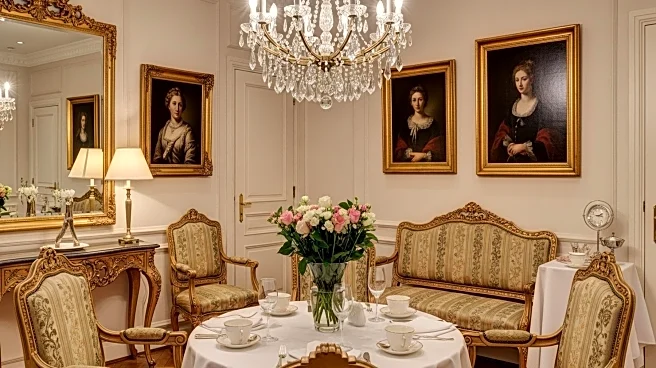What's Happening?
The concept of the salon hostess has played a significant role in cultural and intellectual history, originating in Ancient Greece and evolving through the centuries. In 16th-century Italy and later in 17th and 18th-century Paris, salons became a hub for intellectual and artistic exchange. Hostesses wielded considerable influence, curating guest lists to foster connections between artists and patrons, and guiding discussions across various topics such as poetry, politics, and science. The salon culture was instrumental in advancing French language and literature, with movements like 'Les Précieuses' advocating for women's education and participation in cultural life. Despite facing criticism, these gatherings were pivotal in shaping intellectual discourse and promoting artistic movements.
Why It's Important?
Salons were crucial in democratizing intellectual and cultural exchanges, providing a platform for diverse voices and ideas. They facilitated the mingling of different social classes, contributing to the advancement of arts and literature. The salon hostesses, often women, played a key role in challenging societal norms and advocating for women's rights and education. This historical context highlights the importance of inclusive spaces for dialogue and the impact of cultural leaders in shaping public discourse. The legacy of salon hostesses underscores the ongoing relevance of fostering environments that encourage intellectual and artistic growth.
Beyond the Headlines
The salon culture not only influenced artistic and literary movements but also laid the groundwork for discussions on human rights and women's rights. The salons were among the few spaces where women could exert influence and participate in intellectual debates, challenging traditional gender roles. This historical narrative reflects broader themes of social change and the power of cultural institutions in driving progress. The evolution of salons from artistic gatherings to forums for political discourse illustrates the dynamic nature of cultural spaces and their ability to adapt to societal shifts.









